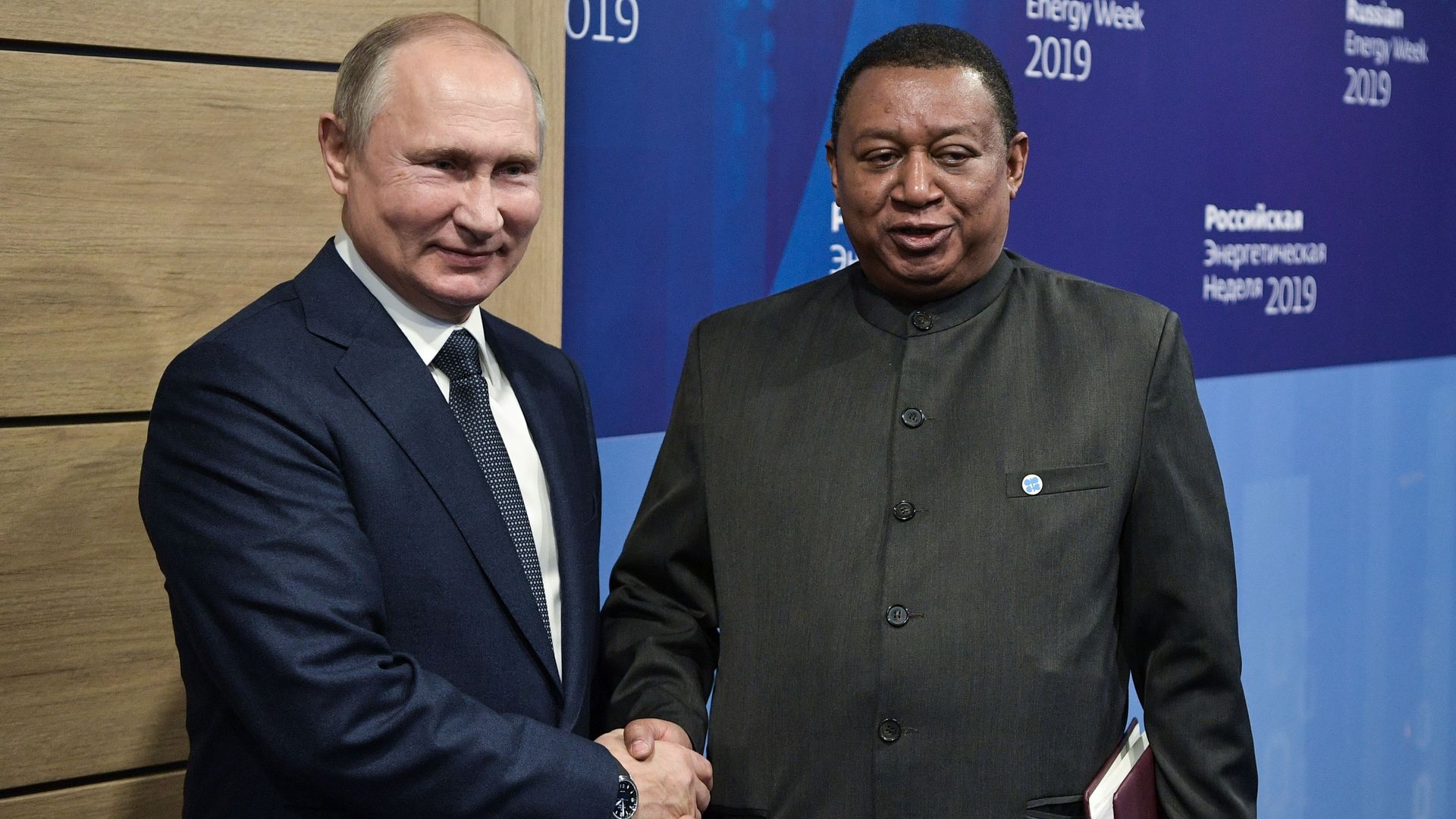Dec 2, 2019 - Energy & Climate
OPEC+ to gather as challenges mount
Add Axios as your preferred source to
see more of our stories on Google.

OPEC Secretary General Mohammed Barkindo shakes hands with Russian President Vladimir Putin at the 2019 Russian Energy Week forum. Photo: Alexey Nikolsky/Sputnik/AFP via Getty Images
